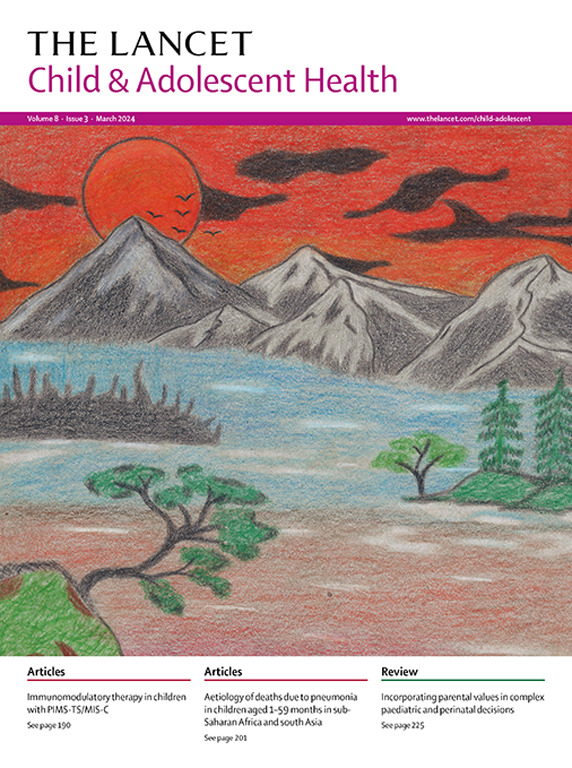Clinical psychedelic research in adolescents: a scoping review and overview of ethical considerations
IF 15.5
1区 医学
Q1 PEDIATRICS
引用次数: 0
Abstract
The potential use of psychedelic-assisted therapy for adolescents with mental illness has sparked both interest and concern. Modern psychedelic research has focused on adults, and adolescents younger than 18 years are typically excluded due to ethical and legal challenges. To explore whether adolescents have been included in 21st century psychedelic research, we conducted a scoping review of the medical literature from January, 2000, to April, 2025. Three trial registrations and one trial plan showed involvement of participants younger than 18 years, but none of these trials were completed and no trial findings have been published. The proposed studies would investigate 3,4-methylenedioxymethamphetamine (MDMA)-assisted or psilocybin-assisted psychotherapy as an intervention for adolescents with post-traumatic stress disorder, autism with social anxiety, or self-harm. Ethical approval and recruitment details were inconsistently reported. This scarcity of data highlights a major evidence gap that could hinder informed care. Given that many medications are used off-label in adolescents, we argue for cautious, ethically grounded research—starting with older adolescents with the highest foreseeable benefit–risk ratio due to special circumstances—to better understand the potential risks and benefits of psychedelic therapies for this vulnerable population.
青少年临床迷幻药研究:范围审查和伦理考虑概述
迷幻剂辅助治疗青少年精神疾病的潜在用途引起了人们的兴趣和关注。现代迷幻药的研究主要集中在成年人身上,由于道德和法律上的挑战,18岁以下的青少年通常被排除在外。为了探讨青少年是否被纳入21世纪的迷幻药研究,我们对2000年1月至2025年4月的医学文献进行了范围综述。三个试验注册和一个试验计划显示参与者年龄小于18岁,但这些试验都没有完成,也没有发表试验结果。拟议的研究将调查3,4-亚甲基二氧基甲基苯丙胺(MDMA)辅助或裸盖菇素辅助的心理治疗对患有创伤后应激障碍、自闭症伴社交焦虑或自残的青少年的干预作用。道德审批和招聘细节的报告不一致。数据的缺乏凸显了一个可能阻碍知情护理的重大证据缺口。鉴于许多药物在青少年中未经核准使用,我们主张谨慎、有道德基础的研究——从特殊情况下可预见的收益风险比最高的年长青少年开始——以更好地了解迷幻疗法对这一弱势群体的潜在风险和益处。
本文章由计算机程序翻译,如有差异,请以英文原文为准。
求助全文
约1分钟内获得全文
求助全文
来源期刊

Lancet Child & Adolescent Health
Psychology-Developmental and Educational Psychology
CiteScore
40.90
自引率
0.80%
发文量
381
期刊介绍:
The Lancet Child & Adolescent Health, an independent journal with a global perspective and strong clinical focus, presents influential original research, authoritative reviews, and insightful opinion pieces to promote the health of children from fetal development through young adulthood.
This journal invite submissions that will directly impact clinical practice or child health across the disciplines of general paediatrics, adolescent medicine, or child development, and across all paediatric subspecialties including (but not limited to) allergy and immunology, cardiology, critical care, endocrinology, fetal and neonatal medicine, gastroenterology, haematology, hepatology and nutrition, infectious diseases, neurology, oncology, psychiatry, respiratory medicine, and surgery.
Content includes articles, reviews, viewpoints, clinical pictures, comments, and correspondence, along with series and commissions aimed at driving positive change in clinical practice and health policy in child and adolescent health.
 求助内容:
求助内容: 应助结果提醒方式:
应助结果提醒方式:


